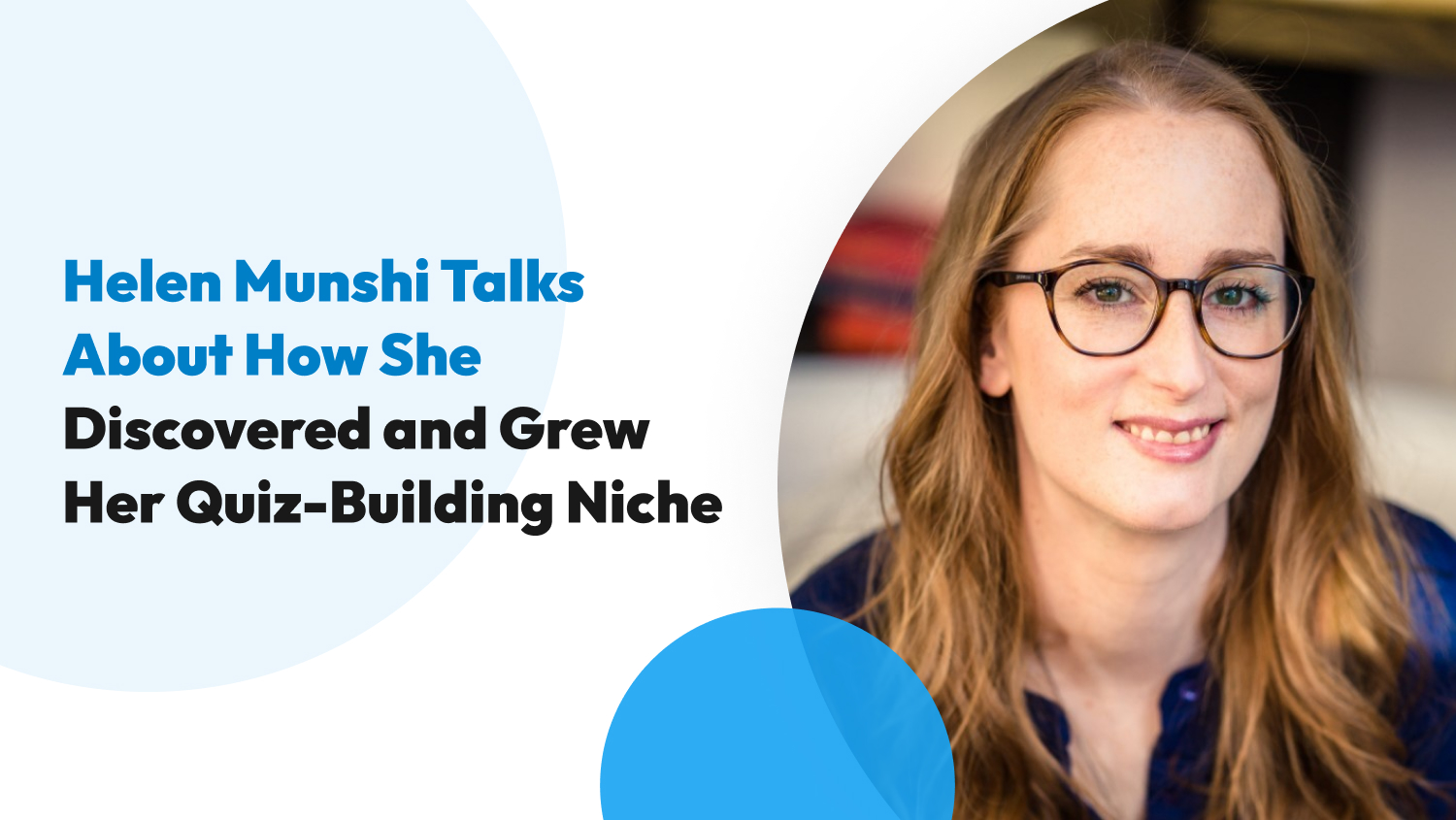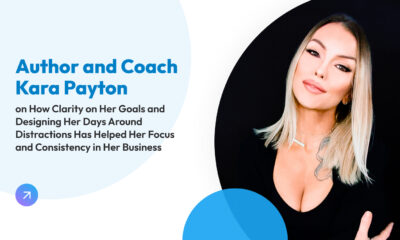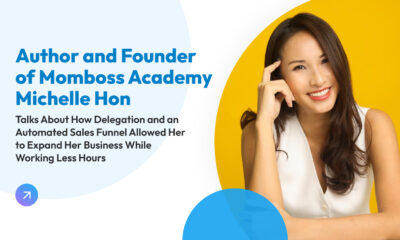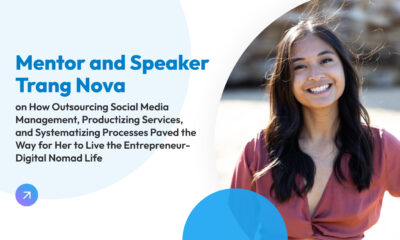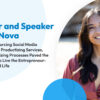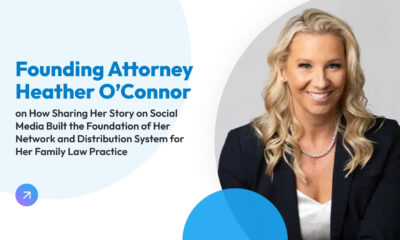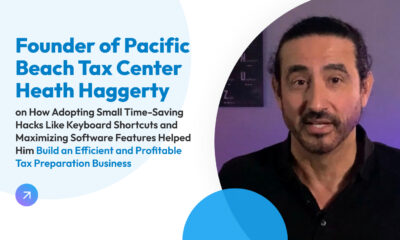Case Study
Helen Munshi Talks About How She Discovered and Grew Her Quiz-Building Niche
UK-based quiz funnel expert Helen Munshi tells us about her journey from a business strategy specialist in the private and non-profit sectors to a business owner scaling up on her quiz-building expertise.
Let’s take a look at the challenges she faced along the way and how she managed them through systems, tools, and people. Don’t forget to check out her Read-Listen List and Productivity Stack Quick Reference at the end of the article.
Table of Contents
- Starting
- Growing
- Scaling & Success
- Hindsight: What Munshi would have done differently
- Her Main Tools
- Wrap Up
- Munshi’s Read-Listen List
- Munshi’s Productivity Stack Quick Reference
- More About Helen Munshi
Starting
Challenge 1: Transitioning from the corporate environment to running your own business
Munshi got her start in business consulting with a large international firm. When she realized it didn’t give her the lifestyle she wanted, nor the ability to implement strategy quickly and get results, she decided to try another market. She tried charity work helping young entrepreneurs build their businesses, and loved it.
But about six years in, she felt the need to start something of her own. And without much of a plan aside from what she wanted to do and who she wanted to serve (exactly opposite what she advocates as a business consultant!), she quit. Munshi tried her hand at a property management business and did freelance business consulting.
After many years in very structured, corporate-type environments, Munshi had to adjust to the business-owner life. It wasn’t an easy transition being in charge of her own time and all the decision-making.
“I came from a really structured background, a nine to five, and switching into being responsible for every single decision – that was the biggest challenge for me.”
Solution: It helped that she ventured into her businesses one at a time for her to adjust to the changes in her day-to-day. “I actually focused on the property business for the first year or so to get that established before introducing the business of strategy and consulting. If you’re going to start multiple businesses, always start them one at a time, because it’s a lot of work. And it takes a lot of mental capacity.”
And she had to remind herself that the rigidity of a corporate setup was one of the main reasons she left that space. She says, “The biggest thing I had to learn was to relax a bit more. I almost tried to replicate my 9 to 5 in my own business – that was part of what I was trying to get away from, so that didn’t really make a lot of sense. I definitely took a little while to create some space in my calendar.”
Munshi learned to value time to ‘not be busy’ but to be creative. To this day, she considers these gaps between meetings or purposefully setting aside time for creative thinking and planning as integral to her business.
People: Munshi
Systems: Allowing oneself time to settle into new routines and ways of doing things, focusing on one major project at a time, setting time blocks in the calendar for creative work or planning
Tools: Google Calendar
Challenge 2: Distribution: Balancing working in the business and prospecting for new leads
Munshi built a big network from her years in private and public sector consulting. She tells us, “I did have connections. I love talking to people; I love networking, so I was getting work from there.”
But she didn’t have a system for getting new clients. Working as a solopreneur, she would get tied up with delivering services and take her eye off marketing and prospecting efforts. She found herself going through the feast and famine cycle without a steady pipeline of new jobs.
Solution: Munshi admits, “It was sort of a stop-start situation until I got into the flow of being able to balance my time delivering the business as well as actually marketing the business.” She mostly used ‘old-school’ methods of prospecting for new clients through in-person marketing and networking. It was enough to get her high-ticket strategy consulting service a steady stream of clients, with existing clients also bringing in referrals.
People: Munshi
Systems: Including networking and marketing her business in her calendar, networking and referral system
Tools: Google Calendar
Challenge 3: Defining and marketing your services
But marketing ‘business growth strategy consulting’ was not as simple as it sounds. Munshi told us she struggled to explain exactly what this service is to prospects. Entrepreneurs are familiar with the concept of ‘business coaching,’ but this is quite different from her expertise and offer.
A business coach will help you set goals and unlock or develop skills that will empower you to achieve the goals yourself. A strategy consultant, on the other hand, will bring the expertise and skill to identify and create solutions for specific business issues. You can outsource the strategizing and even execution to them, which is why it’s also called “done for you services.”
Munshi says, “I think I went through maybe six months of calling myself a business coach, but I switched straight back because I am a strategist, that is what I’m trained for, and that’s what I do. So trying to explain the impact of having someone who is strategically looking at your business – that’s quite challenging.”
Solution: Munshi found her solution when she started building quizzes for lead generation. She shares, “Before I even started offering quiz services, I implemented a quiz in my own business and thought, ‘Wow, this is what I’ve been looking for, and this is what I know that my clients are really missing.’”
The quiz-building process still involved a lot of her business strategy expertise, such as analyzing the customer journey and funnel building. And she enjoyed the creative side of it as well. “It’s about really honing in on your voice, understanding the audience and what they need, and playing on our human psychology. There’s a lot of that woven into the process of creating a quiz.”
But having a ‘tangible product’ or output in the form of a quiz made it easier to market to potential clients. She had new leads approach her after taking the quiz on her website, asking that she build one for them as well.
Munshi works with a small team to support her quiz-building service. She uses Pinterest to bring leads to her website, so she has a Pinterest Manager. She works with a copywriter in charge of landing pages and email sequences. She also has a general virtual assistant who helps her stay on track with all her deliverables.
People: Munshi, Pinterest manager, copywriter, general virtual assistant
Systems: Simplifying service offerings to something clients could easily understand or connect to, creating a tangible product for a complex service, hiring a small team
Tools: Google Calendar, Pinterest, TryInteract, which is a tool for creating online quizzes
Growing
Challenge 4: Distribution: Marketing through podcasts and social media
In the 15 years she has been in the business, Munshi has seen the need to modernize her way of lead generation. For her high-ticket business consulting service, she could stick with face-to-face marketing and referrals. But for her quiz-building services, she needed a higher volume of good-quality leads to stay fully booked. And with so many businesses now online, what other outbound lead generation efforts could she use?
Solution: Aside from creating and updating quizzes on her website as a lead magnet, Munshi has also leveraged the quizzes she has built for her clients into a robust referral system. “I do a quiz for someone that will be taken on their website. When they get asked, ‘Who did your quiz?” they get passed to me.”
She is guesting on podcasts and participating in summits or bundles to reach new audiences at scale. She has also been posting more content to increase online visibility.
Her virtual assistant makes a lot of these marketing efforts possible. She finds and books speaking opportunities. She also makes sure that valuable pieces of information and insights Munshi shares during these guestings or appearances are captured and repurposed on her social media. She extracts quotes to repost on Instagram and uses longer form copy for email content and her blog.
People: Munshi, general VA
Systems: Integrating a referral system into her quiz-building service, using podcasts, summits, and bundles to reach a wider audience, delegating some administrative and marketing tasks to a general virtual assistant, repurposing content
Tools: Google Calendar, Instagram, Facebook, Pinterest, LinkedIn, TryInteract
Scaling and Success
Challenge 5: Increasing the reach of quiz services
When we asked about her plans for her quiz-building service, Munshi told us she wants to remain closely involved in crafting and delivering the products. “I wouldn’t want to necessarily start an agency because I feel like people are coming to me, and they want my particular mix of different skills.”
But she also wants to make her quiz-building services more accessible. How does she scale up so that more people can benefit from her expertise at a more affordable price point?
Solution: Munshi is working on a program called “Quiz Academy,” which will train people to make their own quizzes. It will combine a self-paced course, live coaching, and technical support, all available at a lower cost than her one-to-one quiz-building service. With this format, Munshi explains, “You still get the benefit of my experience with quizzes and strategy but at a much more accessible price point.”
People: Munshi, general VA, copywriter, technical support team
Systems: Productizing what was previously a service provided on a one-on-one basis
Tools: Google Calendar, Instagram, Facebook, Pinterest, LinkedIn, TryInteract
Hindsight: What Munshi would have done differently
Munshi admits she has a tendency to work on a number of things at the same time. She enjoys having that variety but wonders if it could be slowing her progress, as well.
“I’ve got some property work, the quiz business, and some other stuff that I do. And sometimes, I feel like if I put all my energy and focus into one thing only, I would be in a slightly different place. But it just suits me, having the variety. Maybe that’s one thing I’d look at.”
She also mentions that she should have set up systems sooner. She thinks that would have saved her stress and made starting her business a smoother journey.
Her Main Tools
Munshi gave us a rundown of the main tools she uses to keep focused and stay on top of her businesses.
She uses a whiteboard to keep track of her yearly goals. She plots out two or three months at a time and focuses on two or three things she wants to achieve in that time frame. She uses Trello, like a personal diary, to organize her ideas, and put them in a logical order. For her work team, she uses Asana to track projects, priorities, and deadlines.
Lastly, she still uses spreadsheets a lot. She says, “I think the other main tool I use a lot is spreadsheets, which sounds slightly old school. I use it for tracking numbers, analytics, accounting, and that kind of thing. I know that the numbers in your business tell a story, and people get slightly scared of them. But I think the first step is always to track them and then understand what it is that they’re telling you.”
Wrap Up
Munshi’s story is a great example of how listening to your market and solving their problems can open up opportunities to offer new or additional services. Looking back on how her business has expanded from strategy and consulting to include quiz-building, she reflects, “I don’t know many people who start a business, and they’re still in the same business five years later. And if they are, you’ve got to ask, ‘Did you just get lucky, or are you maybe not necessarily listening to the signals that are being sent to you by your audience and your business?’”
She knows firsthand the importance of pivoting and evolution in business. But at the same time, she also knows the value of sticking to old-school tools and systems, like a whiteboard for planning, networking for referrals, and crunching numbers on spreadsheets to monitor progress. It’s a great reminder that we don’t need to jump on every flashy new widget to grow and scale our business.
Munshi’s quiz-building genius will soon be accessible to more businesses in need of a fresh and creative lead magnet. Stay tuned for the launch of her Quiz Academy!
Munshi’s Read-Listen List
- Building a StoryBrand book by Donald Miller, which talks about a unique approach to branding and connecting with your customers
- The Diary of a CEO podcast by Stephen Bartlett, where he dives deep with entrepreneurs to talk about their business journeys and their insights
- Luminary Leadership podcast by Elizabeth Hartke talks about leadership in different settings, such as leadership in your daily actions as an individual or working with a big team
Munshi’s Productivity Stack Quick Reference
Starting Stack
Growing Stack
Scaling & Success Stack
More About Helen Munshi
Helen is an online business growth strategist and trained quiz funnel expert with over a decade of experience. She helps entrepreneurs generate consistent, high-quality leads using the magic of online quizzes.
She went from struggling on a charity sector wage to over six figures running multiple businesses. Her success is all down to getting her audience to find her, love her, and buy from her through the power of quizzes.
Helen is an advocate for ditching scare marketing and boring freebies to focus on positive, empathetic marketing.
She’s a country music-loving Brit! Usually found with a messy ginger bun, eating anything spicy, and playing Korfball (look it up, it’s a real sport!!).
You can check out her latest quiz on her website. This will help you find out your next best move to build a profitable and purposeful business you love. Take the quiz here.
You can also find out more on:
Website: www.helenmunshi.com/
Instagram: https://www.instagram.com/helenmunshi/


